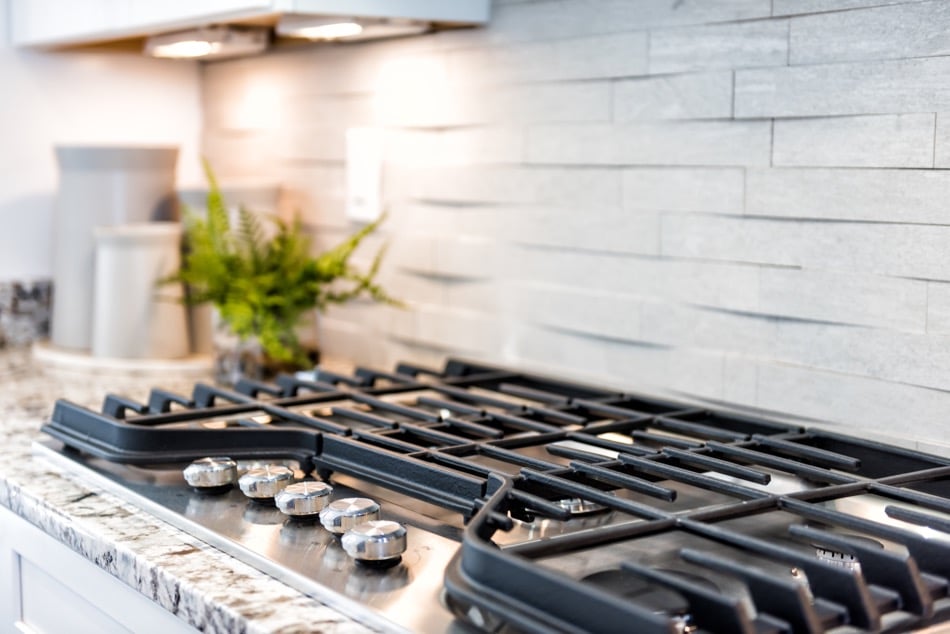
Buying a New Stove? Evaluating the Pros and Cons of Gas vs. Electric
 When the oven conks out or a kitchen renovation is in the works, homeowners are often faced with the dilemma of whether a gas stove or electric stove is the best choice. The following information will outline the pros and cons of gas vs. electric stoves to help determine which option will best meet your lifestyle and kitchen layout.
When the oven conks out or a kitchen renovation is in the works, homeowners are often faced with the dilemma of whether a gas stove or electric stove is the best choice. The following information will outline the pros and cons of gas vs. electric stoves to help determine which option will best meet your lifestyle and kitchen layout.
An Evaluation of Electric Stoves
Quite a few homeowners are fine with choosing the easiest option, and because most kitchens feature a 220-volt electric plug, the simple choice is to go with an electric stove. One can just plug the stove in and start cooking. Additionally, there are situations in which access to natural gas isn’t available, so going with an electric stove is the only viable option. That being said, there are a few pros and cons of these types of stoves.
The Pros of an Electric Stove
Some top reasons that homeowners choose electric cooking implements include:
- They are typically less expensive that gas stoves.
- The presence of a flatter cook top surface is easier to clean and more stable.
- Installation is much simpler vs. gas.
- Most kitchens have an adequate power source already installed.
- They are easy to turn on and off.
- Kitchens don’t get as hot.
The Cons of Electric Stoves
Here are some of the potential and most commonly noted downsides to cooking with electric stoves.
- The stove top stays hot far longer than a gas burner grate, creating more burn opportunities.
- Smart electric stoves with advanced features can be more costly than gas.
- Food cooks somewhat slower than gas.
- Electric stoves can use as much as three time more energy than gas.
- If the energy supply goes out, the stove will too.
- Glass cook tops are easily damaged when something is dropped on them.
What Buyers Should Know About Gas Stoves
Gas-powered stoves are the preferred choice of cooking enthusiasts and professional chefs. This is likely because there is a bit more control over the flames incited and the fact that the heat is immediate versus an electric burner that takes time to get hot. Let’s explore more pros and evaluate the potential cons of having a gas stove.
Pros of Choosing a Gas Stove
First, we’ll cover a few reasons why gas stoves are the preferred choice for many homeowners.
- Typically, a homeowner will save as much as 30% when cooking with a gas stove.
- Users have immediate temperature control as increasing or decreasing the flame.
- Both the stove and oven will heat faster with gas.
- Grilling, simmering and steaming options are elevated with gas.
- The stove top of a gas stove is typically easier to clean versus electric burners or flattops.
- Even pans that are unleveled will heat evenly on gas stoves.
The Cons of Gas Stoves
While it’s the preferred choice of chefs, there are a few drawbacks to utilizing gas power for cooking that should be considered.
- Turning on the pilot light periodically might be necessary.
- Lighting and turning on burners can be tricky, while electric stoves turn on immediately.
- Burner flames can weaken over time.
- There is a high risk of carbon monoxide poisoning if the unit develops a gas leak.
- Additional ventilation might be necessary for safety.
Whether you’re thinking of buying a gas or electric stove, both with definitely meet the culinary needs of your home. However, keep in mind these perks and drawbacks when making a decision about your purchase.



